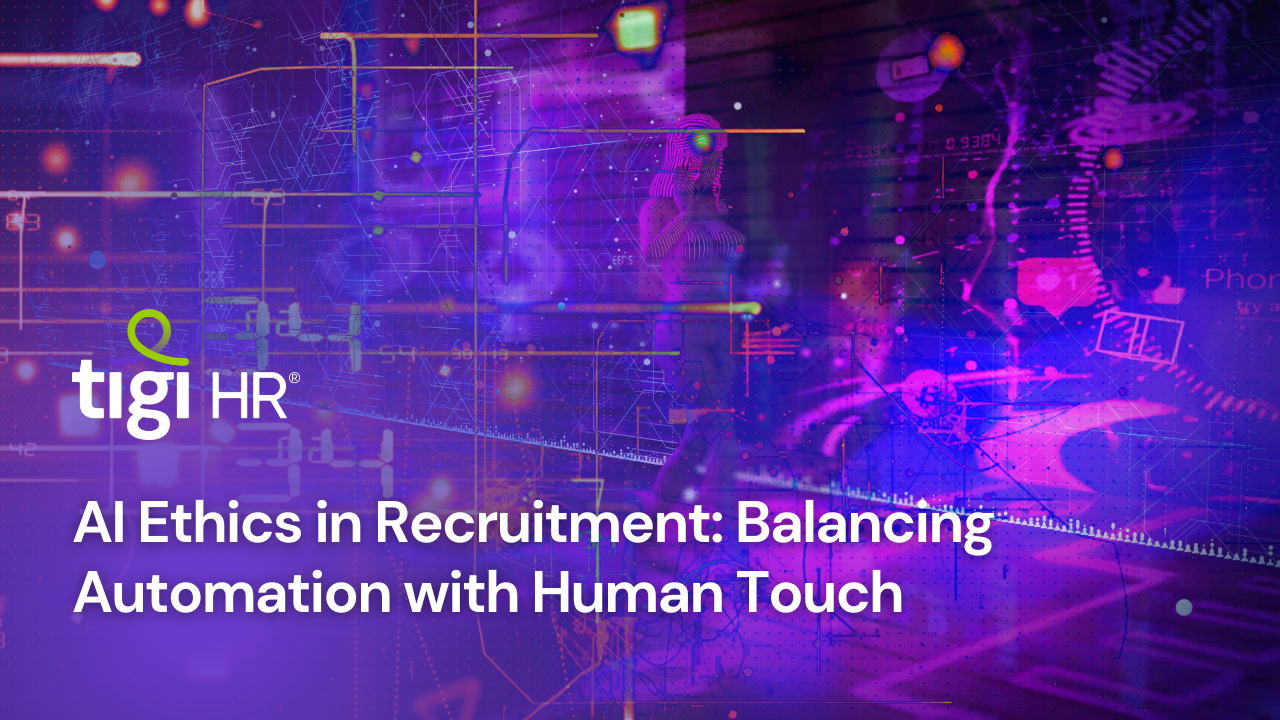Artificial Intelligence (AI) has revolutionized various aspects of industries, and recruitment is no exception. The integration of AI in talent acquisition has streamlined processes, increased efficiency, and provided valuable insights for decision-making. However, as AI takes on a more significant role in recruitment, questions arise about its ethical implications. Striking a balance between automation and the human touch is essential to ensure fairness, transparency, and respect for candidates. In this article, we delve into the world of AI ethics in recruitment, exploring the benefits and challenges of AI-driven processes while preserving the values of human interaction.
The Rise of AI in Recruitment
AI has brought unprecedented advancements to the recruitment landscape. With machine learning algorithms, natural language processing, and predictive analytics, AI can swiftly sift through thousands of resumes, analyze candidate data, and identify patterns that may elude human recruiters. A report by LinkedIn highlights that 67% of talent professionals and hiring managers believe AI saves them time in the recruitment process.
Benefits of AI in Recruitment
- Efficiency and Time Savings: AI-driven tools significantly expedite the initial stages of recruitment by quickly shortlisting candidates whose skills and experiences align with the job requirements. This efficiency enables recruiters to focus on more strategic aspects of the hiring process.
- Data-Driven Decision Making: AI analyzes vast amounts of data to uncover trends and insights that can guide recruitment strategies. These insights enable better-informed decisions, leading to higher-quality hires.
- Unbiased Selection: AI algorithms are designed to assess candidates based on their qualifications rather than personal attributes. This reduces the risk of unconscious bias, ensuring a fair evaluation of all applicants.
- Enhanced Candidate Experience: Chatbots and AI-powered communication tools can provide candidates with real-time updates on their application status, improving their overall experience and perception of the company.
Ethical Challenges of AI in Recruitment
- Algorithmic Bias: AI systems can inherit biases from the data they are trained on, perpetuating existing disparities. A study by Harvard Business Review found that AI algorithms used by some tech companies exhibited gender bias in their recommendations.
- Privacy Concerns: The collection and analysis of candidates’ personal data can raise privacy concerns. Companies must ensure that candidates’ data is handled responsibly, with explicit consent and in compliance with data protection regulations.
- Lack of Transparency: The “black-box” nature of some AI algorithms makes it challenging to understand how they arrive at decisions. This opacity can lead to distrust among candidates and internal stakeholders.
- Dehumanization of the Process: While AI streamlines processes, overreliance on automation can lead to a lack of personal connection between candidates and recruiters, potentially alienating candidates and affecting employer branding.
Striking the Balance: AI and Human Touch
- Transparent AI Algorithms: Companies should prioritize using transparent AI algorithms that provide clear explanations for their decisions. This transparency helps build trust and allows candidates to understand how they were evaluated.
- Regular Algorithm Audits: Regularly auditing AI algorithms for biases is crucial to ensure fairness. Employing diverse training data and implementing checks for fairness can help mitigate algorithmic bias.
- Human Oversight: While AI can handle repetitive tasks, human oversight is necessary to review AI-driven decisions, especially in critical stages of the recruitment process. This oversight helps correct any potential biases or errors.
- Enhanced Candidate Engagement: Integrating AI-driven communication tools with a personal touch can enhance candidate engagement. For instance, a combination of chatbots and human interaction can provide candidates with quick responses while maintaining a personalized experience.
Insights and Statistics
- According to a report by PwC, 55% of business and HR leaders believe that AI will have a significant impact on their organizations in the next five years.
- A study by IBM found that 66% of CEOs believe cognitive computing (which includes AI) will drive significant value in HR.
- A survey by KPMG revealed that 73% of respondents believe it is important for AI to be explainable and understandable.
- In a Talent Board survey, 64% of candidates stated that the timeliness of employer communication had the most significant impact on their candidate experience.
Strategies for AI-Driven Ethical Recruitment
- Bias Mitigation: Implement AI tools that can detect and mitigate bias in candidate selection. Regularly assess and recalibrate these tools to ensure fair outcomes.
- Transparent Communication: Clearly communicate the role of AI in the recruitment process to candidates. Inform them about how AI tools are used and emphasize the human component in the decision-making process.
- Continuous Learning: AI systems should be trained continuously to adapt to changing trends and to improve their decision-making capabilities over time.
- Human-Centric Approach: Maintain a human-centric approach by ensuring that candidates have access to human interaction when needed. AI should complement, not replace, the personalized touch in recruitment.
Conclusion on AI Ethics in Recruitment
AI Ethics in Recruitment has brought undeniable benefits, enhancing efficiency and providing valuable insights. However, the ethical implications of using AI in candidate selection cannot be ignored. Striking the delicate balance between automation and the human touch is essential to ensure that recruitment remains fair, transparent, and respectful of candidates’ rights. By adopting transparent algorithms, conducting regular audits, providing human oversight, and enhancing candidate engagement, organizations can harness the power of AI while upholding the values of ethical recruitment. As AI continues to shape the future of recruitment, its ethical implementation will define the success of organizations in attracting and retaining top talent.





